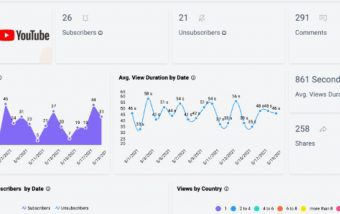How To Know If Someone Blocked You On iMessage? 5 Secret Hacks!
Apr 16, 2025

Apr 16, 2025

Apr 16, 2025

Apr 15, 2025

Apr 11, 2025

Apr 11, 2025

Apr 11, 2025

Apr 08, 2025

Mar 29, 2025
Sorry, but nothing matched your search "". Please try again with some different keywords.


As the academic year draws to a close, the opportunity to create a lasting memento for your fellow students is a wonderful way to bid adieu before summer vacations. Why not embark on the journey of crafting a yearbook brimming with cherished photos, memories, and heartfelt messages from both your peers and teachers?
However, fashioning a yearbook isn’t a simple endeavor. Apart from collecting photos and quotes, you’ll need to navigate the intricacies of the printing and binding process. Suppose you find yourself unsure about managing these tasks independently. In that case, we strongly recommend employing the services of a professional printing and binding provider to guarantee your complete satisfaction with the final product. So, without further delay, let’s delve into the steps for creating the perfect yearbook.
When it comes to yearbook content, the possibilities are limitless. Here are a few sections that you might consider incorporating:
A yearbook wouldn’t be complete without an abundance of photographs, messages, and quotes from both students and teachers. However, the task of gathering all the necessary information necessitates time and careful planning. Presumably, you’re part of a team or committee, and distributing responsibilities fairly among members will ensure a high-quality result.
To alleviate some of the pressure, we recommend commencing the collection of photos and quotes as early as possible, as engaging with numerous individuals is a task that cannot be rushed. Here are some rapid-fire tips to assist you in the photo and quote-gathering process:
Capture candid moments that truly reflect the essence of your school experience.
Cover a wide range of events to provide a comprehensive overview of the academic year.
Prioritize quality over quantity, ensuring that each photo and quote is meaningful and well-crafted.
Strive to include as many different students and teachers as possible to ensure that everyone’s unique presence is acknowledged in the yearbook.
Design and Layout
Once you’ve amassed all the content for your yearbook, it’s time to embark on the design phase. Utilizing the right yearbook design software can significantly streamline the creative process by offering templates and design elements to make your yearbook visually appealing and distinctive. Here are some suitable yearbook design tools and software options to consider:
Adobe InDesign: Offering a wide array of templates and seamless integration with other Adobe software such as Photoshop, Adobe InDesign is a powerful option, though it may have a steeper learning curve for newcomers.
Canva: Known for its user-friendly interface, Canva is a popular choice. It provides users with hundreds of template options, stock images, graphic elements, and font choices, making it accessible even for those with minimal graphic design experience.
FlipHTML5: Ideal for those planning a digital yearbook, FlipHTML5 allows users to design page layouts and incorporate images, text, and shapes to bring their yearbooks to life. It even comes with a free publishing platform for sharing the yearbook online.
After you’ve meticulously designed your yearbook, the next step is to initiate the printing and binding process. Given the sentimental value of the yearbook to many, we strongly recommend creating copies through a professional printing and binding service.
Once you’ve researched and selected the most suitable provider for your needs, you’ll need to communicate your yearbook requirements, which include:
Paper type selection, as it directly affects the look and feel of the yearbook. Gloss paper is often the preferred choice as it enhances color vibrancy and photo clarity.
Binding type: The choice of the binding method directly impacts durability and usability. Options include stapled, perfect, wire, and hardback binding. For longevity, we recommend hardcover binding, which accommodates higher page counts and safeguards inner pages.
Finishes: Finishing touches play a vital role in enhancing the yearbook’s appearance and durability. Most printing services offer gloss and matte finishes. In this instance, gloss is likely the more suitable choice, accentuating the vibrancy of colors in photographs.
Creating a memorable yearbook is a labor of love that requires time and meticulous planning. Nevertheless, with the right team, access to suitable software, and professional printing and binding expertise, you can produce a durable yearbook that will be treasured by students for generations to come.
Read Also:
Ankita Tripathy loves to write about food and the Hallyu Wave in particular. During her free time, she enjoys looking at the sky or reading books while sipping a cup of hot coffee. Her favourite niches are food, music, lifestyle, travel, and Korean Pop music and drama.
View all Posts
How To Know If Someone Blocked You On iMessag...
Apr 16, 2025
7 Website Design Mistakes That Are Hurting Yo...
Apr 16, 2025
Programmable Dynamic SEO for Location-Based P...
Apr 15, 2025
Google Boba Game: How To Play This Fun Game B...
Apr 11, 2025
Which Is The Best Video Search Engine Of 2025...
Apr 11, 2025

